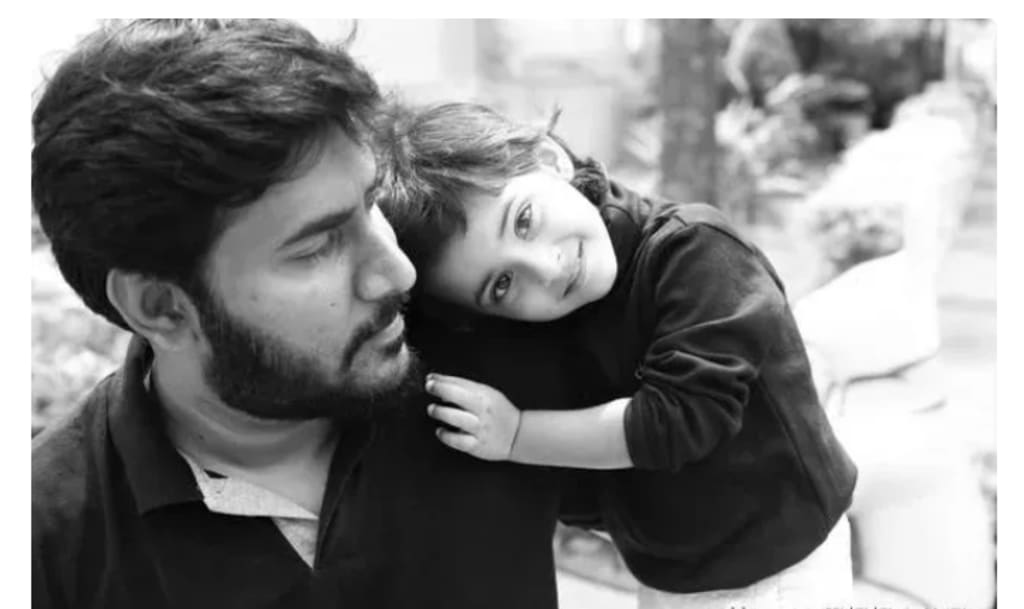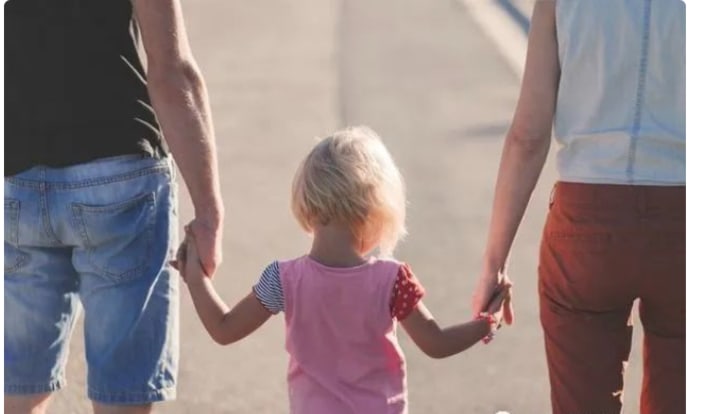
Babies go through many sensitive periods during their growth phase. Each sensitive period is extraordinarily important to the child. Babies in the sensitive period, not only can exercise the corresponding skills, and, once missed, it is difficult to make up for a lifetime.
Does your baby like to walk on uneven ground? The sensitive period of walking is coming
Some time ago, a mother complained that her daughter was not yet 2 years old, and some time ago a small park was newly built in the community, which had 2 or 3 slopes. Since her daughter walked that ramp, she began to "remember". Every time, my daughter can walk on the slope for half an hour.
Faced with her daughter's "obsession" with the slope, Amei felt very helpless.
First of all, although the daughter walks more stable, walking on the slope, but still fell many times, and her knees are bruised.
Secondly, the daughter is constantly walking around, and will not "hurt the legs".
Finally, Amei pays more attention to the early education of children, for walking on the slope, it takes a long time to play back and forth, is this kind of play useful for children?

I believe that many parents have such confusion. Even, though many parents directly intervene, do not let the child walk on such a ramp, or in the child walk, are supported by parents to walk.
This is just the baby's "walking sensitive period" to come. Since it is a sensitive period, then parents need to take it seriously.
The four stages of a baby learning to walk
Before understanding the sensitive period of walking, parents need to understand what, the baby learning to walk, will go through and what stages.
Stage 1: 10-11 months, stand up
The baby will stand up while holding the mother's hand, or a fixed object such as a bed or chair.
Stage 2: Around 12 months, standing up and squatting
The baby will not only stand up, and can squat down to pick up things. Parents at this time to exercise the child's stand-up squatting action, to enhance the strength of the legs.
Stage 3: 12-14 months, holding on to things
Babies can hold on to the fence, the mother's hand to start walking. At this time, the baby is still a little timid to let go.
Stage 4: 13-18 months, walking independently
Babies can let go of their mother's hand and start to walk independently and explore the world around them. It is also at this stage that your baby is likely to enter the "walking sensitive period".
Baby's walking sensitivity
The "walking sensitivity period" is a sensitive period that usually occurs after a baby can walk independently. And, when this sensitive period comes, it is not certain, may just walk into it, or maybe until about 2. Therefore, parents should accurately catch, whether the baby has entered the "walking sensitive period".
1、Walking all the time
I heard my mother say that I learned to walk independently on the first day of the first month of the new year when I was a child, and I was 16 months old at that time. After finding out that I could walk independently in the morning, I spent the whole morning walking back and forth on the grounds of my home.
Babies suddenly like to walk, and back and forth to walk non-stop, such frequency is also relatively high, then the baby is likely to enter the walking sensitive period.
2, like to walk back and forth stairs
Many children are on their hands and knees when they first start walking up the stairs. At this time, it is considered the "hands and feet sensitive period". When the child learns to go up and down the stairs alone with his feet and is hooked on this behavior, that is also a walking sensitive period.
3、Like to walk on uneven ground
The vast majority of children have liked to play on high and low ground, that rush down the feeling, the child will feel very cool. This is also the baby into the walking sensitive period, he is exploring the "high and low".
4, like to walk in the "find the fun"
Adults in the walking time, the rules, walking on the finish. For children, walking is not only to reach the destination but also to be able to play.
If your baby likes to walk in a grid, walk a "one-way bridge", jump over puddles, step on puddles, etc. when walking it is your baby having fun walking, which is also a sign that your baby is entering a sensitive walking period.
What are the benefits for babies when they get to walk fully during the "walking sensitive period"?
Seeing the above walking sensitive period, perhaps some parents will not hesitate to reject their children. For example, how dangerous it is to walk up the stairs when the baby is so young? But what parents don't know is how important these sensitive walking periods are for babies.
1, the baby has a greater sense of accomplishment, good for self-confidence, guts, etc.
One day there was heavy rain, and the next day when you go out, there are a lot of puddles on the ground. Grandma was worried that Pistachio would step on wet shoes, so she wanted to hold Pistachio to walk, but Pistachio was full of refusal, so the 2-year-old Pistachio walked on his own.
In the beginning, the pistachio will be careful to bypass the puddle. Only, when the grandmother is not paying attention, go to the puddle to jump, and then laugh especially happy. Later, the grandmother simply did not care, anyway, her shoes and pants have been wet. This pistachio came to life, every puddle must step.
In avoiding one puddle after another, pistachios are very accomplished. When stepping on one puddle after another, pistachios feel especially funny. What if grandma has to hold pistachios? Then, pistachio is likely to feel that puddles are a terrible thing to see later on pretension.
Meet the baby's sensitive period of walking, the baby will find pleasure in it, and after completion, will be full of a sense of accomplishment. These will boost the baby's self-confidence, guts, and so on.
2, the baby's intelligence can be developed
Let's take the example of a baby going up and down the stairs!
Baby up and down the stairs, he will repeatedly use his feet, to sense the space up and down, and then use his feet to grasp the space. Until, the baby can accurately grasp, and then the up and down the stairs, to be able to use their feet to climb, down the stairs skillfully. This ability will allow the baby's feet, in any space, can be used skillfully.
The potential of the baby's feet is gradually developed, and likewise, the brain, which is used for perception, is also developed.
In the walking sensitive period, the baby is not just as it seems, just "walking" when walking, the baby is also thinking, and exploring its imagination, and creativity are also being expanded, and the baby's intelligence, naturally, is developed.
3, the baby is more independent, and the number of "hugs" will become less
After the baby enters the sensitive period of walking and gets satisfaction, then the baby to carry out the walking exercise will be very much. In this process, the baby will be accustomed to their walk. This baby will be more independent.
Those babies who are restricted by their parents during the sensitive walking period will gradually lose the desire to explore and even lose the desire to walk and find walking a very exhausting task. That's why, after walking a few steps, many babies turn around and ask their parents for a "hug".
How should parents treat their babies during the "sensitive walking period"?
1、Let your baby's feet loose
The first thing parents should do when entering the "walking sensitive period" is to release their baby's feet and let them enjoy the joy that walking brings them!
2, accompany the child together "walk"
Parents watching their children walk, you can also accompany the child "walk", so that the baby knows that he is not alone. In the company of parents, the baby will be braver!
But parents should note that if the baby is a little afraid, then parents can hold the baby's hand, and accompany the baby to explore. And when the baby can walk independently and does not ask the parents to hold hands, parents should not extend their own hands, just stay with them and quietly watch the baby walk.
3、Don't be afraid that your baby will fall down
Babies are not as afraid of pain as we think, a fall for the baby is, in fact, a big deal. The baby enjoys the process of walking, and even after the fall, continues to get up and walk.
However, as parents still need to take care of the baby's safety, parents need to ensure that the baby's walking environment is relatively safe, with no sharp objects, etc.
4, "create opportunities" for the baby
Rural joy, want to meet the baby's "walking sensitive period", it is easy. But in the city, living in a small cell, parents may need to "create opportunities" for their children.
Parents can go to the neighborhood park to find the ramp, take the child to climb the stairs, and so on. There are always opportunities, depending on whether the parents have the heart to prepare for their children.
Pistachio Mom's message
For babies, every "sensitive period" is the most rapid growth stage for them. As parents, what we can do is understand what kind of sensitive period your baby is in, and then use the right way to make your baby happy through this sensitive period.
About the Creator
Udley
Miracles happen every day.






Comments
There are no comments for this story
Be the first to respond and start the conversation.